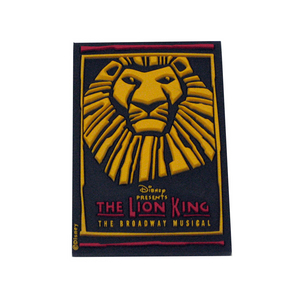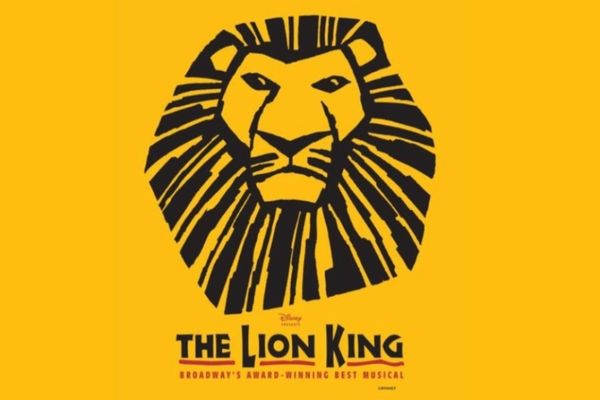Mark Mancina: How a King Soars & Sings
Unlike any Broadway musical before and challenging the extremes of creativity yet to come The Lion King has proudly roared in New York City for 10 years! The unique and unforgettable award-winning production has thrilled over 45 million people across the globe.
The distinctive theatrical achievements of The Lion King are the handiwork of dozens of talented artists, creators and musicians, including co-songwriter and music producer, Mark Mancina.
Mancina, who helped
pen the music to the original Disney animated movie, has also composed the
original movie scores to hit films like Tarzan,
Speed, Twister, Training Day and
this Thanksgiving's release of August
Rush. For more information visit MarkMancina.com
BroadwayWorld's News Desk Editor, Eugene Lovendusky, had the enjoyable opportunity to chat with Mark Mancina days before The Lion King's 10th Anniversary gala performance (unfortunately later interrupted by the strike). Mancina shares the joys and inspiration in creating the unique music for The Lion King and how the musical has touched his life professional and personally…
Eugene Lovendusky: Thank you very much for taking a moment to chat with BroadwayWorld and congratulations with this ten-year milestone with The Lion King. Take us back to the start of it all… whom approached you about making the "sound" for The Lion King.
Mark Mancina: I had originally produced the songs for the film, arranger, composer here and there, and as a result, I had written a song that I thought – for the movie – would be really powerful. But the reality was that as I got further into the project, the song would be inappropriate paired with the Elton John and Tim Rice songs. After The Lion King success, Disney came to me and asked "Do you have material you could derive from the score or new material that could be featured in 'Rhythm in The Pridelands'?" and the feature would also feature Lebo – and I was really eager to work with Lebo again. I showed Lebo this song that I had called "He Lives In You" and we finished it, recorded it, and that song happened to get to Julie Taymor… this record really influenced the way she wanted to take the story and visualize the musical. It was a series of events that led with a phone-call from her asking Lebo and I to put The Lion King into a musical! I was a pretty happy guy by then and didn't have much desire to do it as a musical until I met Julie. She said she wanted it to be organic, real, human… she wanted to have percussion you can see and to expand on the African score. For a composer, this was all music to my ears. Having Lebo as a partner, I said "I'm in!" I had to put my music-composing life on-hold and immersed myself into a new world of theatre. It was fascinating! What was this? She was explaining so many situations that would be happening on-stage, but I had no idea what she was talking about! [laughs] She explained that a giant Mufasa mask would appear during my song… and of course, until all the costumes and sets were finished, it was an amazing process! Theatre is so human and alive! When people are flying, there are wires. You see it. With the costumes, you see the people. That's what got me to believe in this really from the beginning. I knew it would be so special. She was the captain of the ship.
Eugene: What an absolutely fascinating story! There's a special X-Factor when something creative is just good! It sounds like when you and Lebo and Julie got into a room, it came together. Did you ever know, 10 years ago, that The Lion King would be such a phenomenon?
Mark: No. When I was in the opening for London, a couple of press people said to me: "You realize this is going to be a ten-year run of a show?" I couldn't imagine anything going that long, but it would be terrific if it did! My experience with musicals, it would be lucky to get a year or two. The fact that it's been ten years – not only does it feel like all that happened so long ago – but it's not only in New York… it's all over the world!
Eugene: What hand do you play in those different world productions? Do you have any creative guidance?
Mark: Minimally… I was much more involved when the shows first went to different places like London and Canada and Los Angeles. It was like starting from the ground-up again with completely different actors. But now, it has a life of its own. The people that are coming on-board to mount the shows, they know what they're doing. Now there are cast members who can teach, several music directors. What I do now is, as the show is running for a while, I try to get Lebo and our orchestrator to have a day-time rehearsal. We did one in New York about a year ago, and it's amazing. The cast comes strolling in, they're tired. But really, we try to re-inspire them. It's amazing the connection we have with these casts – they're new faces and new people but it's the same songs and same characters – I feel connected from the beginning because they're singing my songs! As I work with them, they respond in really a positive manner. I have such respect for the cast and the pit-orchestra. It's all tricky stuff and I think it just makes them feel good to know they're paid attention to and that the music is such an important factor in the show. It's a really rewarding experience to do that.
Eugene: Going back a little bit about your other impressive list of compositions. Your work with Disney didn't stop with The Lion King. You've also done Tarzan and The Haunted Mansion and Brother Bear. How is composing music for a Disney project different from composing music for other films, like Twister and Training Day?
Mark: Randy Newman once said that for every minute he puts into a live-action score work, he puts three minutes into an animated score work. I think that's really accurate. In order to give depth to animated-characters, and to help people take the leap of faith of really believing in their heart in these characters, is kind of the trick in writing for animation. Being that there's more depth to the themes, they need to last longer, they need to mean more, it's a harder chess game. Animation gives you more time, and believe me, you need more time! I tend to like that work, to think about it longer.
Eugene: Where did you find your gift in music?
Mark: Probably through a series of failures [laughs]. I originally was a classical musician, and then went into song-writing in high school and stayed with that for quite a while, until I got involved with writing instrumental music for documentaries. I had a knack for it and it felt comfortable to me. It was a way to compose music that you probably would never write. That's the thing about film scores that's so great; you write music that you normally wouldn't wake up, get out of bed, and write something like that! But the film asks you to write it. That's what's fascinating. Working on The Lion King musical for me was more like writing for animation because the themes need to match and you have to book-end of ideas. You're working within a certain pallet with a live orchestra. You're playing some tradition-sounding African music, then you're writing strictly orchestra music, and then switching to pop music. You need to do this with one group of musicians – you can't switch. We were lucky we had Tommy Igoe, our original drummer, who was someone extremely skilled – that's a really big part, like a quarter-back. And they vary so much, the feel in "The Stampede" is a completely different feel from "Can You Feel The Love Tonight." All of that really was my responsibility. Lebo was hired as the vocal-coach and consultant and writer – obviously with the lyrics and the different languages in the show. My responsibility as the producer of the music was the ultimate responsibility of making sure that every single musical base was covered. Everything from the arrangements, to the orchestration, to the band, to how it sounds and is arranged. On top of writing lyrics and additional music. It was a big big big job for me. But it has paid-off and something I'm extremely proud of because it's touching so many people. It's an amazing feeling.
Eugene: To put it down in layman's terms, are you a musical theatre fan or a movie fan?
Mark: When I was first going to do this project, I wanted to know more about Julie so I went and saw a production of The Green Bird and it floored me. I had made the mistake of going to see "popular" theatre. I came to New York but I didn't go to the right shows. I didn't know the depth of human-behavior you can explore in theatre. But in The Green Bird, I saw it! Since then, I became a huge fan of it. In my world, I'd love to be involved in another piece. It's just difficult to go from The Lion King looking for the next idea, it's just such a success. I'm connected to projects now, but it's been hard to find the right piece, that makes me feel I want to live that. I do have a film-score career and it's difficult to keep both moving. You kind of have to pick and choose.
Eugene: What has been the most rewarding or unbelievable experience in this ten year saga?
Mark: Not to be morbid, I lost my father a few years back. I'd gotten a phone call from a school that was going to perform a piece from The Lion King musical – the kids had been rehearsing and really wanted me to be there – because they were going to sing "He Lives In You" – which is actually a song I wrote for my dad. It meant a lot to me they would be performing it, but my dad got ill and passed away and I couldn't make it. I got a phone call later from the school saying: "We're sorry you missed the performance. It was amazing. It was really raining and dark and cloudy. We decided to do it anyway and when we began singing 'He Lives In You,' the sun came out, the clouds opened, everybody cheered." I came to find out that the event happened at the exact time he passed away. I nearly dropped the phone. For me, that's what it's all about… that connection. Had The Lion King musical never happened, those kids wouldn't know that song; those kids wouldn't have seen it or performed it. And yet, it was written for somebody who at that time had passed away, and this new life was breathed into these kids. It was just one of those coming-together moments that makes it feel like things are really timed and worthwhile and in harmony somehow in the world.
Eugene: What a phenomenal story! Wow… I can't imagine what a world-bending experience The Lion King has been for you.
Mark: It really is. Thank you! All the best.
Disney's The Lion King celebrated its 10th Anniversary on Broadway Sunday, November 11 with a private cast party (its gala performance was postponed by the strike). In addition to New York City where the show has remained among the top 5 selling shows on Broadway for 10 years, the curtain of The Lion King currently rises seven more times every night all over the world in London, Hamburg, Tokyo, Johannesburg, Paris, and two touring companies throughout the United States. For more information visit www.DisneyOnBroadway.com.
Photo: Mark Mancina








